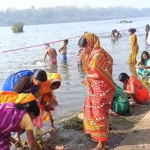VANCOUVER, BC – The streets of Vancouver have recently become a battleground for Khalistani activists, echoing a call for an independent Sikh state known as Khalistan, separate from India. This movement, which has historical roots but has seen a resurgence, has manifested in a series of protests outside the Indian consulate, escalating diplomatic tensions between Canada and India.
The protests began as a response to the killing of Hardeep Singh Nijjar, a prominent figure in the Khalistani movement, in June of the previous year. Labeled a terrorist by India, his death in Surrey, British Columbia, became a rallying cry for Khalistani supporters globally, including in Vancouver, where the Sikh community is significant.
https://twitter.com/BezirganMocha/status/1847395021181637052
What started as peaceful demonstrations quickly intensified. Protesters, waving Khalistani flags, demanded justice for Nijjar, accusing Indian agents of involvement in his murder. These events were not isolated; they mirrored similar protests in other cities globally, highlighting a coordinated effort to pressure the Indian government.
By March 2024, the protests took a more aggressive turn. Khalistani activists in Vancouver did not just rally; they desecrated the Indian flag and burned an effigy of Indian Prime Minister Narendra Modi, actions that drew sharp criticism and led to a strong diplomatic protest from India. The Indian government lodged a formal complaint with Canada, decrying the space given to Khalistani elements and their activities.
The Canadian response has been mixed. While Prime Minister Justin Trudeau has faced criticism for not cracking down on these protests, there have been moments of condemnation from Canadian officials against the more extreme actions like flag desecration. However, the leniency towards these groups, often politically active and supportive of the Liberal Party, has fueled allegations of political favoritism over national security.
Impact on International Relations: These events have not only strained Canada-India relations but also spotlighted the issue of Sikh separatism on the global stage. The protests in Vancouver, alongside similar activities worldwide, have led to discussions on freedom of expression versus national security, the rights of diaspora communities, and the long arm of international politics.
Conclusion: The Khalistani protests in Vancouver represent a microcosm of broader geopolitical tensions, ethnic identity, and the complexities of managing diaspora communities. As these protests continue, they pose questions about integration, security, and the limits of protest in democratic societies.











Add Comment